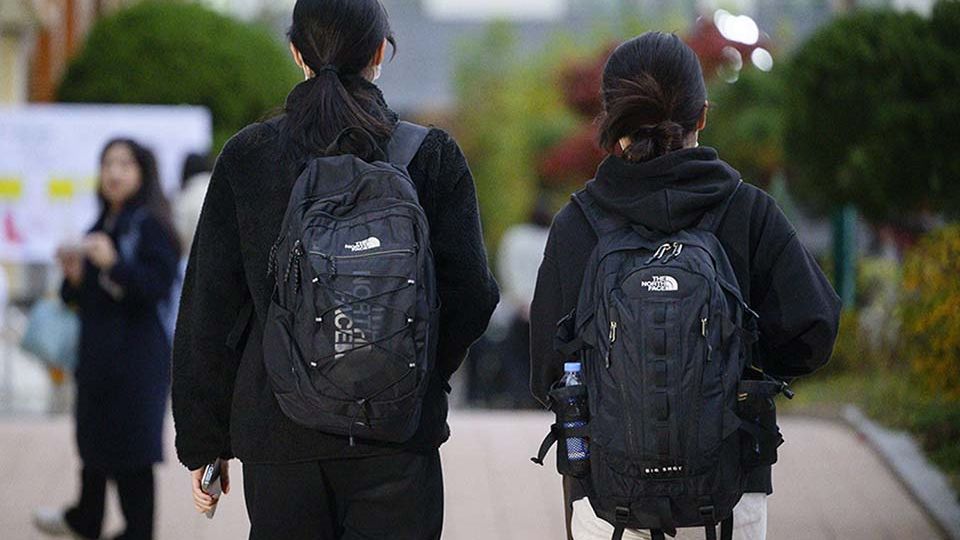March 26, 2025
SEOUL – Many young families in South Korea face a harsh reality: Immense financial and emotional pressures due to the unreasonably high costs of private education for their children. A recent report has it that nearly half of all young children are enrolled in private educational programs (hagwons), most notably English-language kindergartens. The competition is so fierce that people joke about toddlers taking entrance exams in diapers just to secure spots at prestigious kindergartens — viewed as essential prep for gaining admission to high-end hagwons later on.
Many parents invest heavily in English kindergartens, hoping to secure lifelong advantages — but do these costly programs truly help, or do they simply create a new set of problems? Having taught thousands of students in both Korea and the US, I have often found that early starters aren’t necessarily the strongest English learners, even after years of intensive exposure. In contrast, students who developed an interest in English during their teenage years and pursued it outside schoolwork, including watching movies and doing extensive reading for personal pleasure, often show remarkable progress. This suggests that self-driven motivation may be more important than an early start — especially when parents push their children prematurely.
When English fluency is a must — such as in cases of emigration or extended stays abroad — children may initially struggle but naturally grow into the language because it becomes part of their daily lives. Conversely, forcing language learning without a clear purpose can lead children to view English as an obstacle rather than an instrument or privilege, ultimately creating stress and reducing engagement.
That being said, the thriving private education sector pushes younger children far beyond typical grade-level expectations. Toddlers flip through textbooks meant for older American students, while primary school kids sprint ahead into advanced math that leaves little time for effective learning or play. Public schools aren’t necessarily failing, but some parents treat education like a commodity, attempting to buy up their children’s academic future as if upgrading to business class. Consequently, heavily prepped students see little value in regular classwork, prompting the public to blame schools for being too easy or low in quality.
Moreover, research suggests that the benefits of intensive early education may have a limited shelf life. A child might master multiplication in just a month or two at age 7, while a toddler could take a year or longer. This gap arises simply because their brains aren’t developmentally ready. Parents often assume earlier exposure is always beneficial, like starting a race before the whistle blows — but overloading kids with academics at an early age rarely provides lasting benefits if the material isn’t age-appropriate. A study by Margaret Burchinal from the University of Virginia and her colleagues, which tracked 4,667 children ages 3 to 5, found that Head Start children in Tennessee initially outperformed their peers in literacy and math until around age nine. However, by age 11, many showed declining academic performance alongside behavioral problems — an alarming indicator of the hidden risks of premature academic pressure.
Understanding this issue requires nuance. Many South Korean parents, without realizing it, project their struggles and aspirations onto their children, believing that rigorous early education guarantees success. However, parents, consciously or unconsciously, transfer the stress of costly education onto their children — wrapping exhaustion and anxiety, and even a sense of duty in the illusion of care. Some parents expect their children to show absolute gratitude and obedience — even in adulthood — as a return on investment. This kind of financial support ties learning to guilt and obligation, overshadowing children’s sense of purpose and personal growth. In her compassionate and insightful book, “Live As Myself,” education professor Kim Eun-joo at Yonsei University reminds parents that respecting a child’s freedom to choose and explore independently is far more powerful — and certainly more loving — than imposing control.
The good news is that a quiet rebellion is stirring among younger generations. As Millennials and Generation Z step into parenthood, they are signaling shifting attitudes toward schooling and hagwon. Recently, I had lunch with a younger colleague, JD, who wanted to send his daughter to a good kindergarten but found the price of English-language programs way too high. Whether it was about money, doubts over whether it was worth it, or just his own views on education, it’s not my place to judge. In the end, JD chose not to enroll his daughter and decided to save the money for her future instead. Good call, JD! Spending on family activities like dining, traveling and entertainment — or just setting it aside for a child’s future — is money better spent. Our children’s best education isn’t found in the educational pageantry of Gangnam’s Daechi-dong, but in the joy of discovering life together — through laughter at the dinner table, bedtime stories with Dad, and carefree moments at recess and on the playground, where they truly engage with the world — something no SAT vocabulary or calculus formula could ever replace.
Lim Woong is a professor at the Graduate School of Education at Yonsei University in Seoul. The views expressed here are the writer’s own. — Ed.


